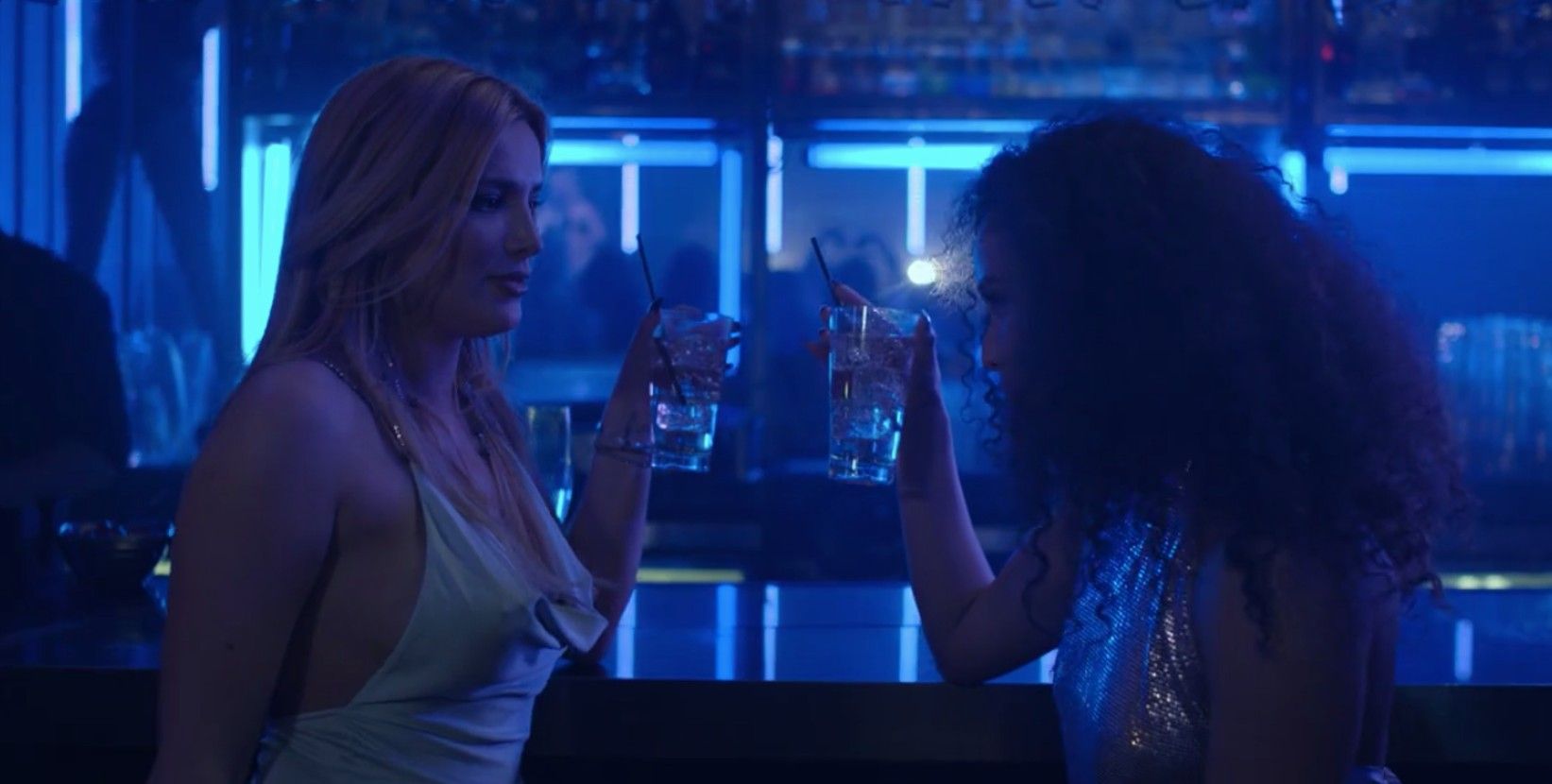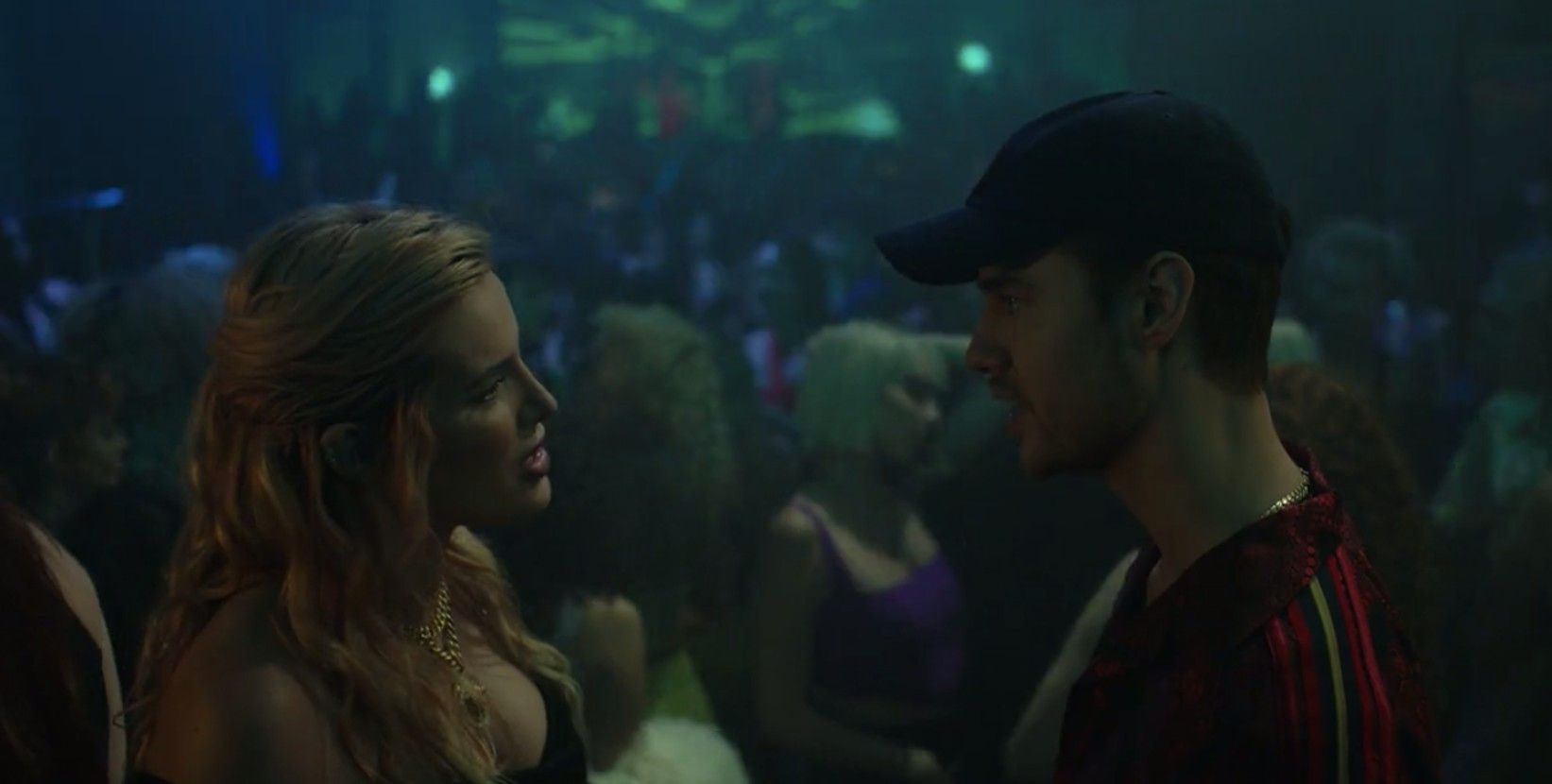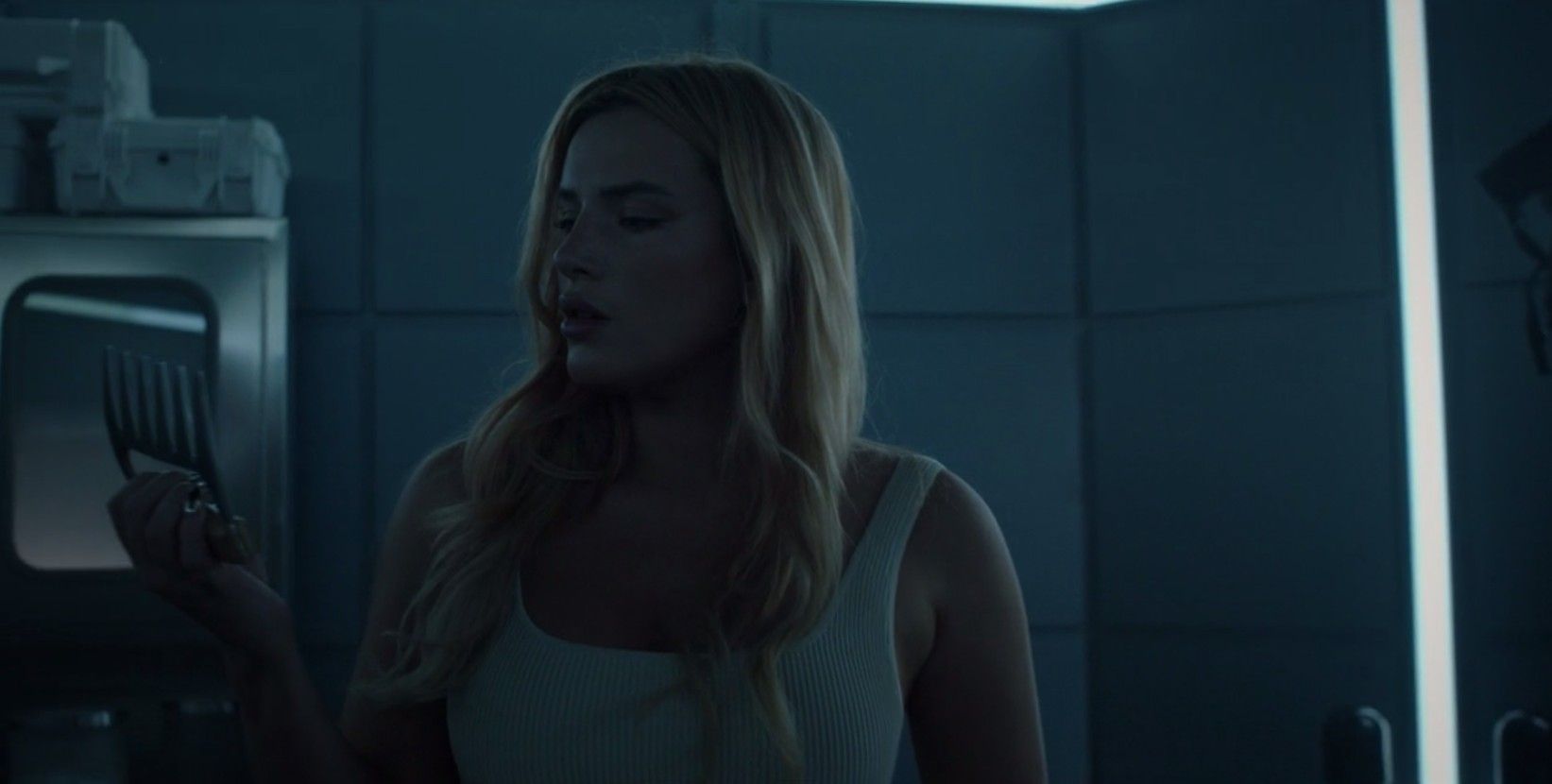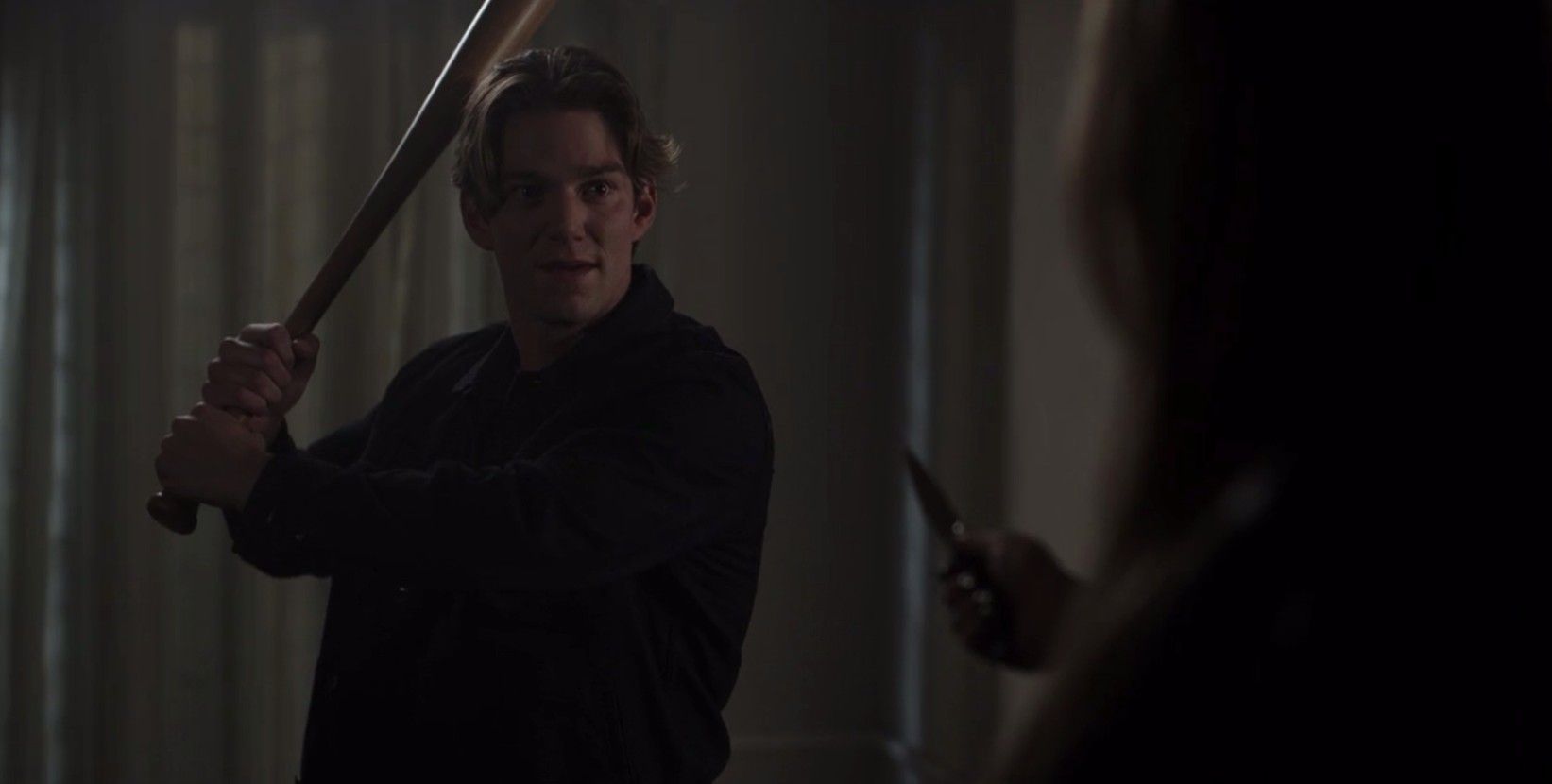This review contains spoilers for American Horror Stories. "Drive" certainly isn't the strongest example of what Ryan Murphy and Brad Falchuk's American Horror Stories is capable of. After a strong start with its season two premiere, it seems the spin-off series is falling into the same rhythm that landed its first season in hot water. "Drive" has a few inclusions that serve the episode well, but those qualities are largely overshadowed by some of the episode's larger issues.
The newest episode of American Horror Stories stars Bella Thorne, Nico Greetham, Anthony de la Torre, Billie Bodega, and Austin Woods. "Drive" was written by Manny Coto, who has written the two previous episodes of the second season of American Horror Stories. Coto is paired with Yangzom Brauen, who serves as the director for "Drive." Despite what it sets out to do, "Drive" is the weakest episode of American Horror Stories' second season yet.
"Drive" begins with two women, Marci (Thorne) and Piper (Bodega), who are partying at a nightclub. Marci grows interested in Wyatt (Woods) and the two become physically involved in Marci's car. The night takes a turn as Marci travels home, where a red jeep begins following her. The driver flashes his lights and even rams into the back of her car. Marci returns home to her husband Chaz (Torre), who suggests going out with her to protect her. The episode's uneasy mood is solidified by the knowledge of a string of disappearances of men and women from nightclubs throughout the area.
American Horror Stories even throws in an urban legend about a woman who was trailed home at night in the same manner Marci had been. The urban legend moves the narrative further, only under the guise of catching the killer before they harm someone else. A coincidental second encounter with the jeep earns Marci's suspicions to a point that ends with her tailing it and showing up at the owner's job. There, she meets Paul (Greetham), and the two have a tense conversation about the knives Marci pretends to be interested in buying. From there, "Drive" begins to flip its narrative on its head that doesn't have the payoff the episode intends.
Early in "Drive," Marci wipes her makeup clean to reveal a bright mark on the side of her face. There are several references to her insecurities with the mark, including Piper's accusation that Marci only wants to party and hook up with strangers because she couldn't do it in high school. "Drive" attempts to have a reason for including this in the end, using the bullying she endured as a stepping stone for Marci's reasons to abduct and kill certain people at nightclubs. It's a piece of "Drive" that ultimately amounts to nothing in the end.
The twist in "Drive" that unveils Marci as the nightclub serial killer has one reward for the American Horror Story franchise. Its fifth season, Hotel, used a similar tactic that unveiled its main character as the serial killer he'd been hunting all season long. Some have remarked that Hotel was a detrimental turn in the horror franchise, lacking the suspense of its previous seasons and borrowing too much from Murder House. It was also the first season without Jessica Lange. Hotel is often discredited as one of American Horror Story's stronger seasons and despite not being a unanimous hit with viewers, even those that dislike Hotel have to value it more after "Drive."
What redeems "Drive" is Greetham. With only a handful of minutes in the episode, Greetham manages to serve the purpose as the patsy and deliver the best performance of "Drive." He is enticing as the suspect and charming as the victim and good Samaritan. Greetham isn't a stranger to creating something out of very little, as he previously did so with "The Naughty List" from the first season of American Horror Stories. "The Naughty List" is one of the lowest-rated episodes of the spin-off series, despite Greetham's spot-on performance as an outrageous influencer.
Where "Drive" lacks most, is its leading character. Marci isn't very likable from the start. She abandons the warnings from her friend, the concerns of her husband, and treats almost every character she comes in contact with unfairly. Even when Chaz expresses an interest in separating, Marci hardly acknowledges it before the very end of "Drive." Marci almost feels robotic in a manner similar to Scarlett from the "Rubber (Wo)Man" episodes of American Horror Stories, a main character that despite her numerous appearances throughout the first season, is no more likable than Marci.
In order to have the effective ending "Drive" tries to pull off, it needs a character viewers actually feel connected to. Its ending should make the audience feel a certain level of betrayal. It should come from a character that viewers have grown to care for or at least value. Marci doesn't get the job done. The humanizing qualities American Horror Stories tries to inject her with, don't hit home. "Drive" ultimately has great intentions but doesn't pull them off in a meaningful way. As for its ending, instead of packing a punch, it leaves viewers feeling like they've been pat on the back.
American Horror Stories is now streaming on Hulu.




